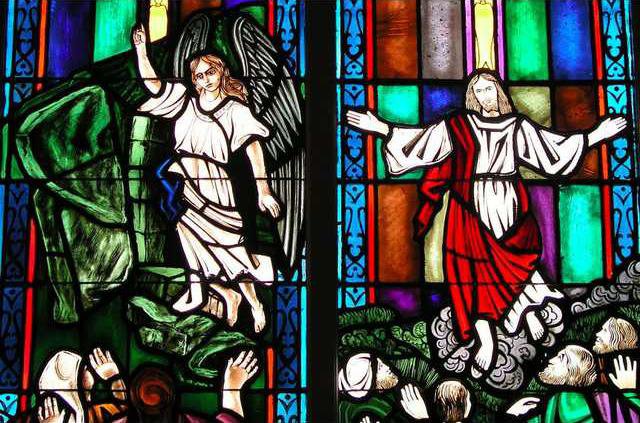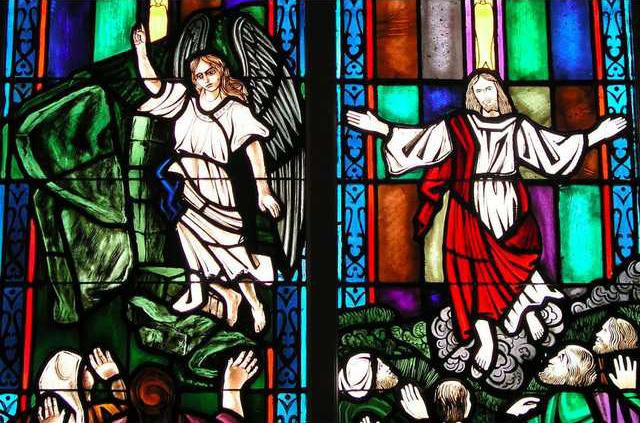The scars of our nation's history are still painfully visible in Macon, Georgia, where two houses of worship both named First Baptist Church stand nearly back to back. Yet, until recently, the two congregations barely interacted.
One is a predominately black church and the other is predominately white, representing a divide that first took form 170 years ago when the battle over slavery led the nation into the Civil War, The Associated Press reported.
The churches were once one, though they split in 1845 when the then-united First Baptist Church purchased another property for its black congregants. The white church oversaw the black church that is until 1865, when ties were severed.
Segregating parishioners was a move that many churches reportedly took amid social tensions over slavery, as well as an increasing African American population growth that sometimes outpaced that of the white population.
This was apparently the case when it came to First Baptist Church.
Unfortunately, those deep divides that segregated the church have continued through to today, as the two houses of worship with nearly the same name (one is called First Baptist Church of Christ and the other is simply First Baptist Church) have existed right down the street from one another for 17 decades and counting.
But that history was revisited one day a few years ago when Rev. Scott Dickison, the 33-year-old preacher at the white church, and Rev. James Goolsby, 59-year-old pastor at the black church, met up for lunch and decided that they were going to take steps to bring the congregations together.
The efforts of both Dickison and Goolsby are taking form at a time when America is struggling with increased racial tensions amid highly publicized police shootings, as well as deadly attacks on cops.
Mix those emotional dynamics with the histories of both First Baptist Churches, and some of the conversations that need to be had to foster reconciliation certainly won't be easy.
But the pastors believe that coping with the past is essential.
"We can't survive spiritually separate," Dickison told The Associated Press.
So, they've begun to work together, taking small steps to forge friendships. The first activity that the two churches undertook was a joint Easter egg hunt. Rather than celebrating separately as they have in the past, church members decided last year to meet in a nearby park and do it together.
Then, they held a Thanksgiving potluck, a book drive and other joint events, as profiled in a recent Associated Press piece.
The two churches will even be participating in an upcoming 5K for combating obesity, with a Facebook post on the white church's page asking congregants to join the effort, which is being led by Goolsby.
And that's hardly the end of their plans to reconcile. Dickison and Goolsby are intent on moving the conversation forward, planning discussions next month with members of both churches about the history of race in their congregations, as well as the broader narrative of race in America.
The churches aren't hoping to become one congregation, but they are seeking a lasting relationship with one another that transcends their complex histories.
Both Dickison and Goolsby believe it's all about moving forward.
"If you hold onto the pain of the past, you don't allow God to minister and bless you in the days to come," Goolsby said during a joint Pentecost sermon. "We can show in our relationship what it means to be a child of God."
The churches have both publicly voiced support for one another on social media as well, where the budding relationship is on full display.
"God continues to do glorious things in this effort," proclaims a Facebook message from Goolsby's church.
And Dickison, too, has commented on his own personal Facebook page about the effort.
"I recently heard someone call the work of racial reconciliation a 'joyful burden,'" he wrote. "I'm grateful for James W Goolsby, our brothers and sisters from First Baptist Church Macon, GA, the good people of First Baptist Church of Christ, and the New Baptist Covenant for making our journey more joyful than burdensome."
Read more about the efforts of both churches to reconcile and deal with the role that race has played in their histories here.
Church divisions on racial lines are nothing new, of course. Martin Luther King Jr. once lamented that 11 a.m. on Sunday mornings is "the most segregated hour in this nation," with many others echoing that sentiment over the years.
One study found that more than eight in 10 churches have one main racial composition in their congregations. And when LifeWay Research asked church members last year to assess the state of diversity in their pews, 67 percent said that they believed their church had done enough to be ethnically diverse.
One is a predominately black church and the other is predominately white, representing a divide that first took form 170 years ago when the battle over slavery led the nation into the Civil War, The Associated Press reported.
The churches were once one, though they split in 1845 when the then-united First Baptist Church purchased another property for its black congregants. The white church oversaw the black church that is until 1865, when ties were severed.
Segregating parishioners was a move that many churches reportedly took amid social tensions over slavery, as well as an increasing African American population growth that sometimes outpaced that of the white population.
This was apparently the case when it came to First Baptist Church.
Unfortunately, those deep divides that segregated the church have continued through to today, as the two houses of worship with nearly the same name (one is called First Baptist Church of Christ and the other is simply First Baptist Church) have existed right down the street from one another for 17 decades and counting.
But that history was revisited one day a few years ago when Rev. Scott Dickison, the 33-year-old preacher at the white church, and Rev. James Goolsby, 59-year-old pastor at the black church, met up for lunch and decided that they were going to take steps to bring the congregations together.
The efforts of both Dickison and Goolsby are taking form at a time when America is struggling with increased racial tensions amid highly publicized police shootings, as well as deadly attacks on cops.
Mix those emotional dynamics with the histories of both First Baptist Churches, and some of the conversations that need to be had to foster reconciliation certainly won't be easy.
But the pastors believe that coping with the past is essential.
"We can't survive spiritually separate," Dickison told The Associated Press.
So, they've begun to work together, taking small steps to forge friendships. The first activity that the two churches undertook was a joint Easter egg hunt. Rather than celebrating separately as they have in the past, church members decided last year to meet in a nearby park and do it together.
Then, they held a Thanksgiving potluck, a book drive and other joint events, as profiled in a recent Associated Press piece.
The two churches will even be participating in an upcoming 5K for combating obesity, with a Facebook post on the white church's page asking congregants to join the effort, which is being led by Goolsby.
And that's hardly the end of their plans to reconcile. Dickison and Goolsby are intent on moving the conversation forward, planning discussions next month with members of both churches about the history of race in their congregations, as well as the broader narrative of race in America.
The churches aren't hoping to become one congregation, but they are seeking a lasting relationship with one another that transcends their complex histories.
Both Dickison and Goolsby believe it's all about moving forward.
"If you hold onto the pain of the past, you don't allow God to minister and bless you in the days to come," Goolsby said during a joint Pentecost sermon. "We can show in our relationship what it means to be a child of God."
The churches have both publicly voiced support for one another on social media as well, where the budding relationship is on full display.
"God continues to do glorious things in this effort," proclaims a Facebook message from Goolsby's church.
And Dickison, too, has commented on his own personal Facebook page about the effort.
"I recently heard someone call the work of racial reconciliation a 'joyful burden,'" he wrote. "I'm grateful for James W Goolsby, our brothers and sisters from First Baptist Church Macon, GA, the good people of First Baptist Church of Christ, and the New Baptist Covenant for making our journey more joyful than burdensome."
Read more about the efforts of both churches to reconcile and deal with the role that race has played in their histories here.
Church divisions on racial lines are nothing new, of course. Martin Luther King Jr. once lamented that 11 a.m. on Sunday mornings is "the most segregated hour in this nation," with many others echoing that sentiment over the years.
One study found that more than eight in 10 churches have one main racial composition in their congregations. And when LifeWay Research asked church members last year to assess the state of diversity in their pews, 67 percent said that they believed their church had done enough to be ethnically diverse.

